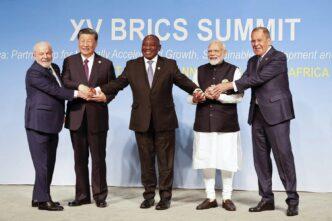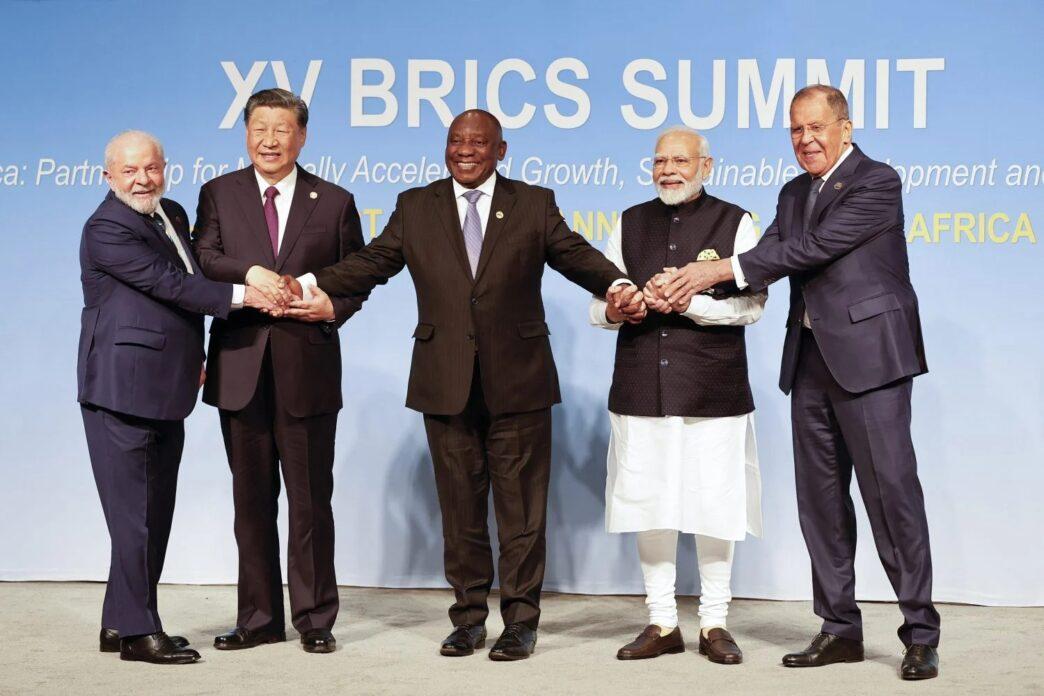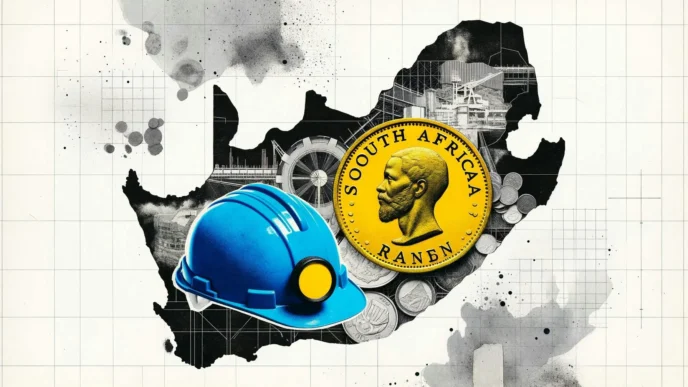The recent BRICS Summit in Kazan, Russia, has marked a significant turning point in Africa’s role within the global economic landscape. With the theme “Strengthening Multilateralism for Just Global Development and Security,” the October 2024 gathering highlighted the expanding influence of the Global South and Africa’s increasing prominence in this powerful economic bloc.

The Summit’s Transformative Impact
The 16th annual BRICS Summit brought together an unprecedented gathering of 36 country leaders, including UN Secretary-General António Guterres, demonstrating the growing appeal of alternative economic partnerships. For Africa, this summit represented a watershed moment, with both Egypt and Ethiopia participating as full members for the first time, joining long-standing African member South Africa.
In a historic development, the alliance announced the addition of 13 new partner countries, including three African nations: Algeria, Nigeria, and Uganda. This expansion reflects a fundamental shift in global economic power dynamics and presents African nations with unprecedented opportunities to diversify their international partnerships.
Breaking Free from Traditional Dependencies
African nations’ growing interest in BRICS membership stems from a deep-seated desire to reduce their historical dependence on Western financial institutions and power structures. Many African leaders have expressed frustration with what they perceive as economic exploitation by traditional partner countries and the often stringent conditions imposed by Western-led financial institutions like the International Monetary Fund (IMF) and World Bank.
The New Development Bank (NDB), BRICS’ financial arm, has emerged as a promising alternative for African nations seeking to escape the dollar-dominated global financial system. This is particularly significant for countries facing restrictions from traditional lending institutions, such as those under military governments that came to power through coups.
Challenges in Economic Transition
However, the transition away from established financial systems presents significant challenges. Even new BRICS members like Egypt and Ethiopia continue to rely heavily on IMF funding. Egypt’s recent US$8 billion bailout and Ethiopia’s US$3.4 billion extended credit facility underscore the complex reality of breaking away from traditional financial structures.
Despite these challenges, African nations see tremendous potential in the NDB’s commitment to more flexible and inclusive financing approaches. The bank’s ninth annual board meeting in South Africa in August 2024 emphasized its dedication to aligning with the long-term development goals of both BRICS members and other developing nations.
De-dollarization Initiatives
One of the most attractive aspects of BRICS membership for African nations is the organization’s push toward de-dollarization. While the establishment of a common currency remains a distant prospect, BRICS members like India and China have already begun promoting trade in local currencies. This initiative could help African nations avoid the volatility associated with dollar-dependent trade and provide greater economic stability.
Security Collaboration
Beyond economic benefits, BRICS membership offers African nations enhanced security cooperation opportunities. The organization has demonstrated its support for African-led peace initiatives, including the African Union’s efforts in South Sudan and regional security operations in the Central African Republic and Mozambique.
This backing of homegrown solutions represents a departure from traditional Western-led security interventions and could provide African nations with additional resources for maintaining regional stability. The emphasis on collective African approaches to security challenges aligns with the continent’s desire for greater autonomy in addressing its security concerns.
Leadership and Governance
African nations view BRICS membership as an opportunity to develop new leadership models inspired by emerging powers like India and China. These countries’ advocacy for political equality, respect for sovereignty, and fair cooperation resonates strongly with African aspirations for more equitable global partnerships.
However, internal challenges exist, as demonstrated by the tensions between Ethiopia and Egypt over UN Security Council reform during a BRICS foreign ministers’ meeting in September 2024. Such incidents highlight the need for careful management of competing interests within the expanding organization.
Agricultural Innovation: The BRICS Grain Exchange
A particularly promising development for African nations is the potential establishment of a BRICS Grain Exchange. This initiative could revolutionize agricultural markets across the continent by stabilizing grain prices and creating more structured market mechanisms. For African farmers and consumers, this could mean reduced price volatility and improved food security.
The exchange could also help African nations diversify their agricultural exports and boost foreign exchange earnings, addressing critical economic challenges faced by many countries on the continent.
Youth Engagement and Future Development
BRICS offers various platforms for African youth engagement, including the BRICS Youth Summit and Youth Council. These initiatives provide valuable opportunities for knowledge exchange and capacity building among young leaders from member nations. The organization’s inter-parliamentary cooperation framework also enables African countries to engage with other emerging economies on governance and policy issues.
Challenges and Considerations
Despite the obvious benefits, African nations must address several challenges as they pursue BRICS membership. Internal stability and clear policy priorities are essential prerequisites for meaningful participation in the organization. Similarly, existing BRICS members need to carefully consider the implications of rapid expansion on the organization’s effectiveness and cohesion.
The diverse political, economic, and cultural interests among member states could potentially complicate decision-making processes and hinder the achievement of common objectives. The African Union’s role in coordinating member states’ engagement with BRICS will be crucial in maximizing the benefits of participation while minimizing potential conflicts.
Looking Ahead
The integration of African nations into BRICS represents a significant shift in global economic and political dynamics. While challenges exist, the potential benefits of membership – including access to alternative financing, enhanced security cooperation, and improved agricultural markets – make BRICS an attractive partner for African nations seeking to expand their international influence.
The success of this partnership will depend on careful management of competing interests, clear communication of objectives, and sustained commitment to mutual development goals. As more African nations join BRICS, the organization’s ability to accommodate diverse perspectives while maintaining its effectiveness will be crucial to its long-term success.
For Africa, BRICS membership represents not just an economic opportunity but a chance to reshape global governance structures and promote more equitable international relationships. The coming years will reveal whether this expanding partnership can deliver on its promise of creating a more balanced and inclusive global order.










